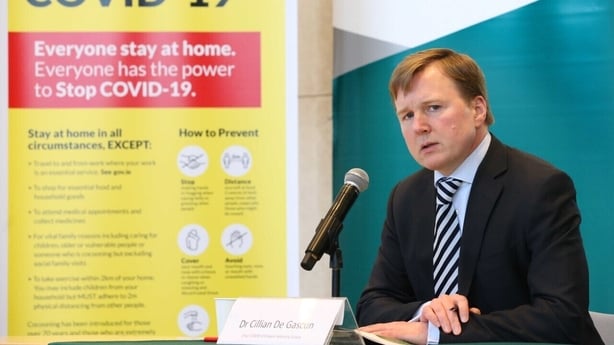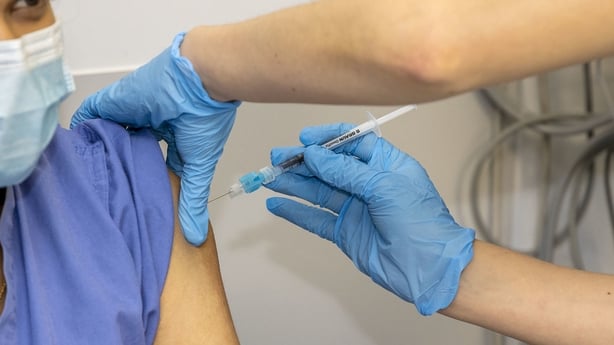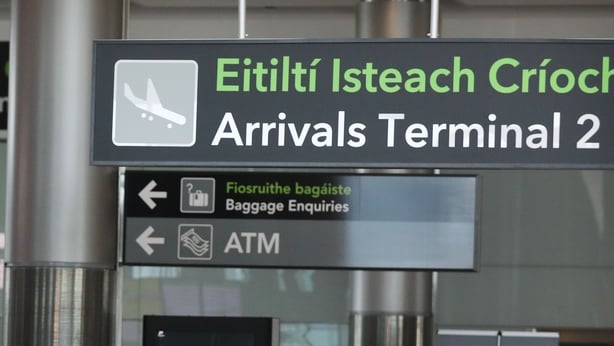Three new variants of Covid-19 have been causing concern in recent times. One that originated in the UK, another that originated in South Africa and more recently a variant that has originated in Brazil. But what are variants and should we be worried about them?
Are there just three variants?
No, there have been many variants of the virus since it first emerged from Wuhan in China just over a year ago. By their very nature, viruses evolve, so scientists are not surprised by these changes. Some have come and gone, such as the Danish variant that was discovered in minks that was eliminated when authorities in Denmark culled the mink population there. Others are becoming more dominant.
So why are we hearing about these ones?
All three have one thing in common, increased transmissibility. The Director of the National Virus Reference Laboratory, Dr Cillian De Gascun said these variants are better and reproducing, infecting and binding to our cells.

So when you compare these variations to older ones, he says for the same amount of virus more people get infected. Or for an activity that was low or medium risk six months ago, that now might be a moderate to high risk. He said that makes it all the more challenging to bring the virus under control.
So am I more likely to get it?
Dr De Gascun said preventative measures are still the same because the virus is still transmitted via droplets from person to person. So if people keep their distance, wash their hands, wear a mask and exercise good respiratory etiquette experts don’t believe there is an increased risk of transmission for what he described as “alternative modes”.
Will the vaccines still work?
There is no evidence that the current vaccines won’t work against these strains. And early evidence from one of the current vaccine producers is that their product will work against the variant that originated in the UK.
But the big changes in these variants is what is called the spike protein.

That protein is what is contained in the vaccine and elicits the antibody response which makes our immune system respond to the vaccine. So there’s obviously concerns any change in that could make the vaccine less effective.
Dr De Gascun said while these variants might be slightly less susceptible to antibodies, they are still susceptible. The belief and hope is the variants will respond to the vaccines but overall it is a case of wait and see.
So once we have the vaccine, that is it?
Not exactly. Dr De Gascun said: “What we don’t know is what will happen over the next six to 12 months, as we introduce the vaccine to the population.
“That will put pressure in on the vaccines. It’s like a little bit of an arms race, its our immune system versus the virus and if the virus changes rapidly, like something like influenza, then it is possible that in the future we may need additional vaccines.
“However in contrast if you look at measles, mumps, rubella they’re also an RNA virus but they don’t mutate quite as quickly.
“So we’ve had the same MMR for decades and its been very effective and measles and mumps haven’t change.
“So while vaccine escape is a theoretical concern for us, at the moment we’ve no evidence that its going to be a significant problem for us.
“But one of the pieces of work we are going to be doing over the next six months is monitoring that. I think the important thing to remember is that while its been a very long year for us in relation to the pandemic, for the virus we’re a very new host. So the virus is still adapting to us its still getting better at infecting and and getting better at transmitting.”
Is there any good news?
Yes the new technology used in some of the vaccines is more adaptable to these variants.
Head of International Health and Tropical Medicines at the Royal College of Surgeons in Ireland, Professor Sam McConkey said one of the best attributes of the Messenger RNA used in the Pfizer/BioNtech and the Moderna vaccines is that they can very rapidly modified to make it effective against a new strain that might “escape the old vaccine” and he said this could be achieved within a few months.
How many of these variants are in Ireland?
It is estimated that over 45% of cases in Ireland are linked to the variant that originated in the UK. There’s just three cases linked to the variant that originated in South Africa.
And so far there have been no cases identified of the variant that originated in Brazil.
So are we going to ban travel from Brazil now?
No. As there’s no direct flights between Ireland and Brazil the government isn’t following the UKs ban on travel from South America and Portugal. But it says it is now contacting everyone who in the past 14 days indicated on the passenger locator form they have travelled from Brazil, to tell them to self-isolate and get a test.
Dr De Gascun said this was a more targeted approach than a travel ban as there are no direct flights between Ireland and Brazil.

He said the variant has not been detected here but that there is a significant Brazilian population in Ireland that may have resulted in travel between the two countries over the holiday period.
The Chief Medical Officer Dr Tony Holohan said: “It is essential that anyone arriving from Brazil self-isolate for 14 days from the date of arrival before entering or reentering the workplace. We are particularly appealing to employers to enable their employees to protect each other by staying at home for the full 14 days.”
